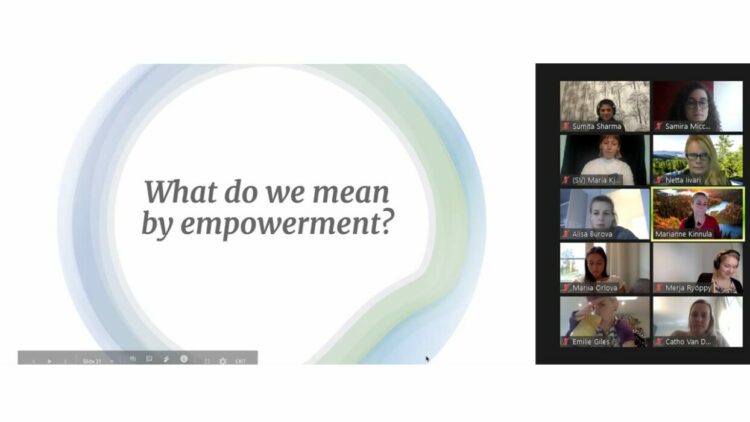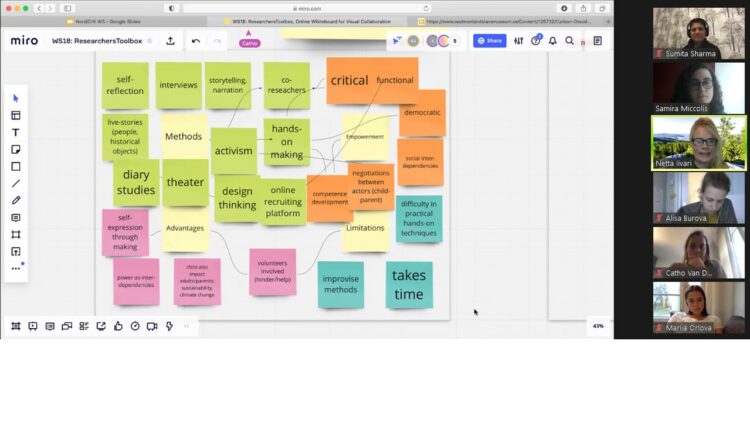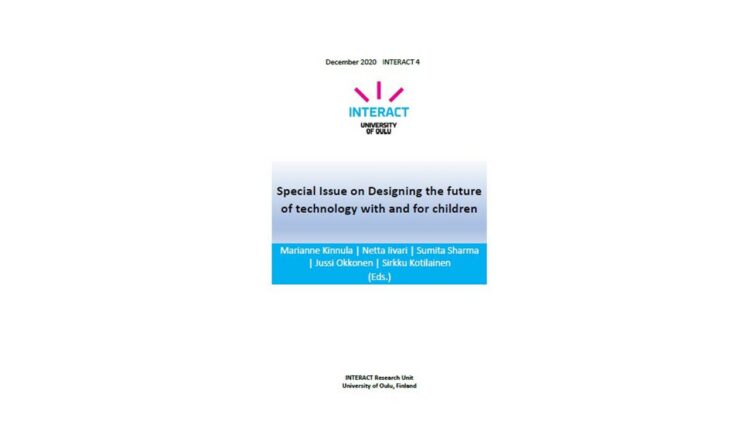Reflecting on and contributing to researchers’ toolbox for children empowerment
PCM Lab alumna Samira participates in a NordiCHI conference workshops and contributes with her work to the special issue on Designing the future of technology with and for children.
Shaping experiences, shaping society
Each graduation project brings many insights in the field explored, that can contribute to the ongoing academic discussions globally. After her graduation project on empowering children as change-makers in their local community, PCM Lab alumna Samira felt she could share many lessons from practice. Triggered by those thoughts, she applied and was selected to join the workshop “Researchers’ Toolbox for the Future: empowering children to shape their future” within the biannual conference NordiCHI 2020. NordiCHI is the main Nordic forum and meeting place for researchers, industry, designers, practitioners, educators working within Human-Computer Interaction (HCI) research.
Samira joined in particular a workshop focused on reflecting on the ethical, political, and technological implications of previous research on children’s empowerment through technology and design. Through these reflections, the workshop aimed at, exploring future-oriented methods to design with children their technological future lives. The workshop contributed to the overall conference theme for 2020, “Shaping experiences, shaping society”, aimed at raising awareness about the effect practitioners have on society through the experiences they enable, facilitate or craft.
A future toolbox for empowerment
Originally planned in Tallinn, the workshop took place in a day-long virtual session, alternating keynotes of experienced researchers in the field of designing with children and guided reflections and discussions with all workshop participants.

After an introduction round, 5 types of empowerment were presented to be discussed among participants:
- mainstream: motivating people through increased decision making power
- functional: improving life conditions of people while maintaining the status quo
- democratic: people have the ability to affect decisions concerning them
- learning and competence: giving people skills to flourish in their full potential, participate fully in society and control their destiny
- critical: challenging the conditions of the status quo
After identifying which types of empowerment recurred in their practices, participants openly reflected on the advantages, limitations and social dynamics they hinder or support. Many thoughts went on the specific pandemic circumstances that are pushing the use of technologies also in rural communities and on the balance between the current push for technological literacy and the conservation of community lifestyle.

In the second part of the workshop, the organizers introduced some possible directions for critical design and research, spacing from socially responsible design to critical empowering participatory design. While proposing future opportunities worth exploring with children such as activism and civic disobedience, they also highlighted the ethical concerns of using critical approaches with children (e.g. are children ready, development wise, to embrace it?) and they encouraged participants to discuss methods and limitations for introducing a critical agenda in children’s lives.
Towards a Child-Led Approach for Children’s Activation
After the rich discussion in the workshop, the workshop organizers from the INTERACT research group invited Samira to publish her contribution in the special issue on Designing the future of technology with and for children of the INTERACT Publication series. With her paper “Towards a Child-Led Approach for Children’s Activation” she presented the Research through Design study conducted in her graduation project with the Lab, aimed at exploring the creation of arenas for children’s participation in society, without a top-down involvement from the institutions. In the publication, Samira highlights her underlying motivations for initiating the study and describes the development of a preliminary method for child-led activation as active agents in their local community. Throughout the pilot of the activation journey, she identified different roles children play which lead to the proposal of 3 research directions for the future of children empowerment:
- strengthening children protagonist role by raising “I can” mindset
- studying the provocative potential of children’s speculative solutions
- supporting children to turn their initiative into a dialogue with policymakers.
If you are curious to know more about it, the full Special Issue can be read here.
